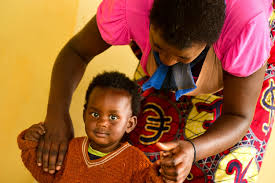In the bustling heart of Nigeria, amidst its vibrant culture and dynamic cities, lies a silent crisis that threatens the future generation—biochemical deficiencies in children born to teenage mothers. These unseen adversaries can profoundly impact cognitive development, casting long shadows over the bright futures that should lie ahead and this article helps us delve deeper.
The Unseen Battle: Biochemical Deficiencies in Children of Teenage Mothers
Biochemical deficiencies refer to the lack of essential nutrients and vitamins that are crucial for brain development and overall health. Teenage mothers ,often caught in the cycle of poverty and limited access to healthcare, may not receive adequate nutrition during pregnancy. This deficiency doesn’t just affect their health but extends to their unborn children, leading to potential cognitive impairments.
The Crucial Role of Nutrients Children of Teenage Mothers
Key nutrients such as folic acid, iron, and omega-3 fatty acids play pivotal roles in brain development. Folic acid is essential for the formation of the neural tube, iron is crucial for oxygen transport to the brain, and omega-3 fatty acids are fundamental in building brain cell membranes. A lack of these can lead to developmental delays, learning disabilities, and even behavioral issues in children.
Nigeria’s Nutritional Landscape for Children of Teenage Mothers
In Nigeria, where teenage pregnancies are prevalent, the issue is compounded by socioeconomic factors. Many young mothers do not have the means to access nutrient-rich foods or prenatal supplements, which are vital for fetal brain development. The societal stigma and lack of support further exacerbate this problem, making it a multifaceted issue that needs urgent attention.
Bridging the Nutritional Gap for Children of Teenage Mothers
Addressing this silent crisis requires a multifaceted approach such as the following:
- Public Health Campaigns: Educating teenage mothers about the importance of nutrition and providing accessible resources can make a significant difference.
- Supplement Programs: Government and non-profit organizations should collaborate to provide free or subsidized prenatal vitamins and nutrient supplements to teenage mothers.
- Community Support Systems: Establishing support groups and local health clinics can offer much-needed guidance and assistance to young mothers.
The Road Ahead to Ensure Safety for Children of Teenage Mothers
Ensuring that children born to teenage mothers receive adequate nutrition is not just about immediate health benefits; it’s about securing the cognitive potential and future of Nigeria’s next generation. By addressing biochemical deficiencies head-on, we can pave the way for a brighter, more intellectually robust future for Nigeria.
- Exploring the Neuroimaging of Infertility-Related Stress: A Nigerian Perspective - May 1, 2023
- The Silent Battle: Investigating the Biochemical Effects of Chronic Stress in Nigerian Women Facing Gender-Based Violence - March 22, 2023
- The Biochemical Effects of Estrogen Therapy in Transgender Women - March 7, 2023


